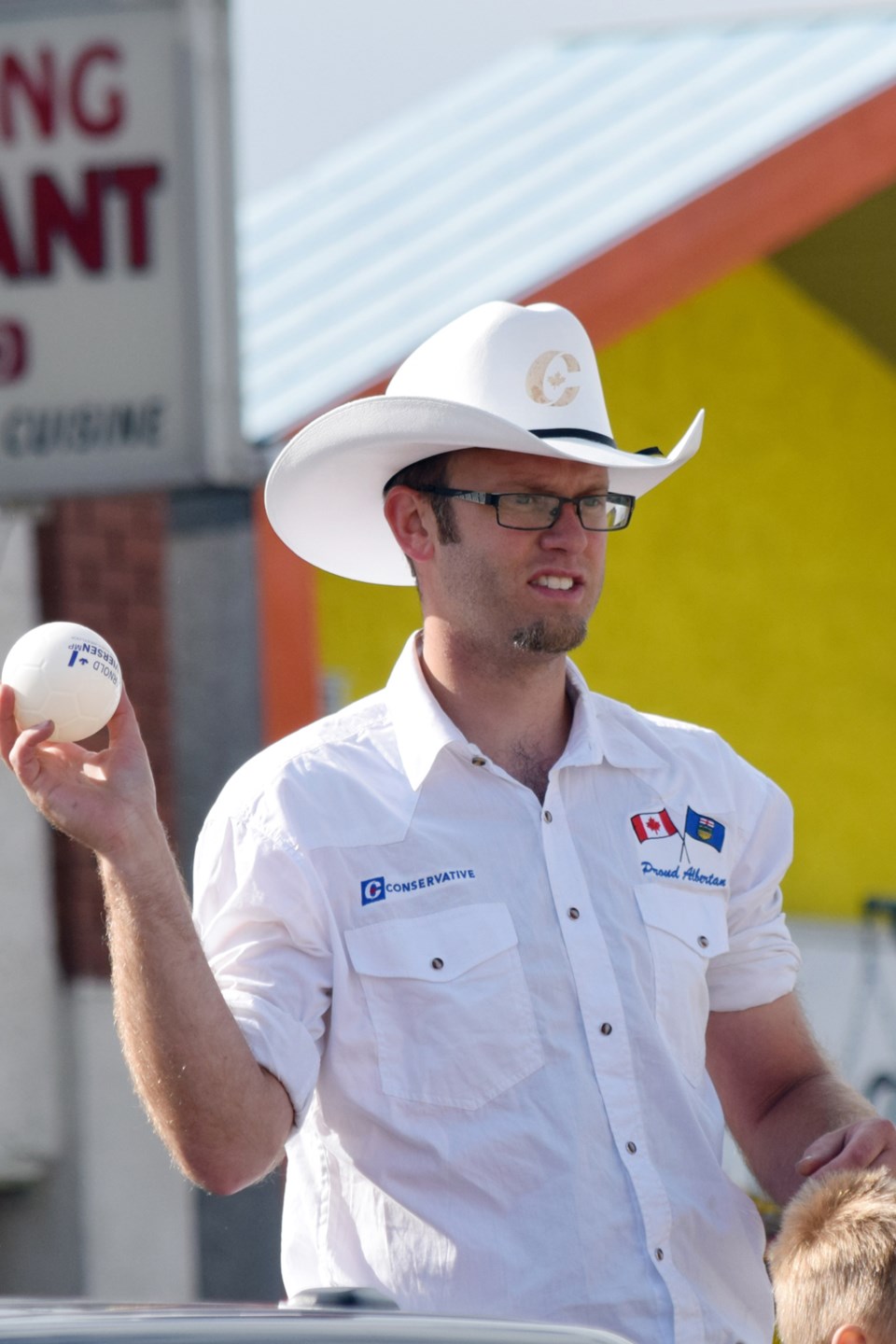BARRHEAD - Reliable access to the Internet is no longer an option in today's world, especially in the wake of the coronavirus.
However, unfortunately in rural communities, it isn't always the case.
That is why Peace River-Westlock MP Arnold Viersen and the Conservative Party of Canada (CPC) are asking constituents for their feedback regarding the issue.
"In Alberta, we are pretty well served if you compare us to other areas of the country in terms of reliable access to cellular phone and Internet," he said, adding rural Internet and cellular coverage in New Brunswick is especially problematic.
Viersen added even in urban areas having access to fast and reliable Internet isn't necessarily a given using the example of Gatineau, Que where he rented a house during his first term.
"I'm 12 kilometres from the Parliament building and I have better cell service from my home in Neerlandia," he said.
Viersen said one of the reasons why Alberta is better is due not only because of topography but because of the need to serve the industry, most notably the energy and forestry sectors.
That being said, there is a lot of room for improvement.
In 2015, the Canadian Radio-Television and Telecommunications Commission designated broadband as an essential service, setting 50 megabits per second (Mbps) download speed and 10 Mbps upload speed. It is estimated that 60 per cent of Canadian households do not meet that standard. The percentage drops drastically in rural households.
The initiative is being headed by CPC MP and Shadow Minister for Industry and Economic Development Michelle Rempel Garner.
"In the last election [Prime Minister] Justin Trudeau said he was going to reduce cell bills by 25 per cent and improver Internet access across the country and it is our effort to hold him accountable," he said.
Viersen noted it isn't the first time he has asked his constituents if they feel they have adequate cellular and Internet service.
In his first term, he held a series of roundtable discussions including with Town of High Prairie and as a result, he has several policy suggestions that might improve rural Internet and cellular service.
However, Viersen hopes people will add their voice this time around. Not only their complaints but possible solutions.
One of the things he hopes will be implemented and will be pushing for is changing the spectrum auctioning system. The spectrum is the radio frequencies that television, radio, Internet and other communications systems such as two-way radios use to transmit data. In Canada, this is governed by Innovation, Science and Economic Development Canada (formerly known as Industry Canada). In 1999, the department oversaw its first auction auctioning off portions of the 24GHz and 38GHz bands. Since then the government has other auctions the lastest being in 2014 when it auctioned off rights to large portions of the 700 Mhz and 2500 MHz bands raising close to $5.3 billion. The majority going to Bell, Rogers, Telus and Vidéotron.
"The problem for rural Alberta is that the big players aren't necessarily interested in bringing service to those areas," he said. "Instead they sit on it and prevent their competition from coming in because they own the spectrum."
Viersen said he isn't proposing prohibiting future spectrum auctions, but a mechanism to ensure companies use a certain percentage of it, including areas outside of major urban centres. If not, the unused spectrum would be made available for other companies.
"There are local companies that would gladly use it, but they can't afford to compete with the big telecom companies," he said.
Municipalities
The other area that Viersen noted needs more exploring is municipal ownership and/or partnerships with telecommunications companies.
He said Lac Ste Anne County and High Prairie are taking this approach.
The idea said is that municipalities would offset the cost of the infrastructure owning the fibre or towers in an attempt to lure telecommunications companies into providing service to underserved areas. Woodlands County has also flirted with the idea, considering installing their telecommunicatioins towers.
"We still have to get the governance sorted," Viersen said.
He added municipalities considering going this route point to Olds and O-Net, a community-owned Internet service provider that runs the fibre optic network that was built by the non-profit Olds Institute for Community and Regional Development.
"They have the fastest Internet of any town in Alberta," he said, adding he isn't sure other municpalities can duplicate what they have done. "It takes a level of expertise ... it is more difficult than just putting fibre into the ground, you need somebody to manage the ends of the fibre."
For those wanting to comment on rural Internet, they can contact Viersen by e-mail at [email protected].
Barry Kerton, TownandCountryToday.com



